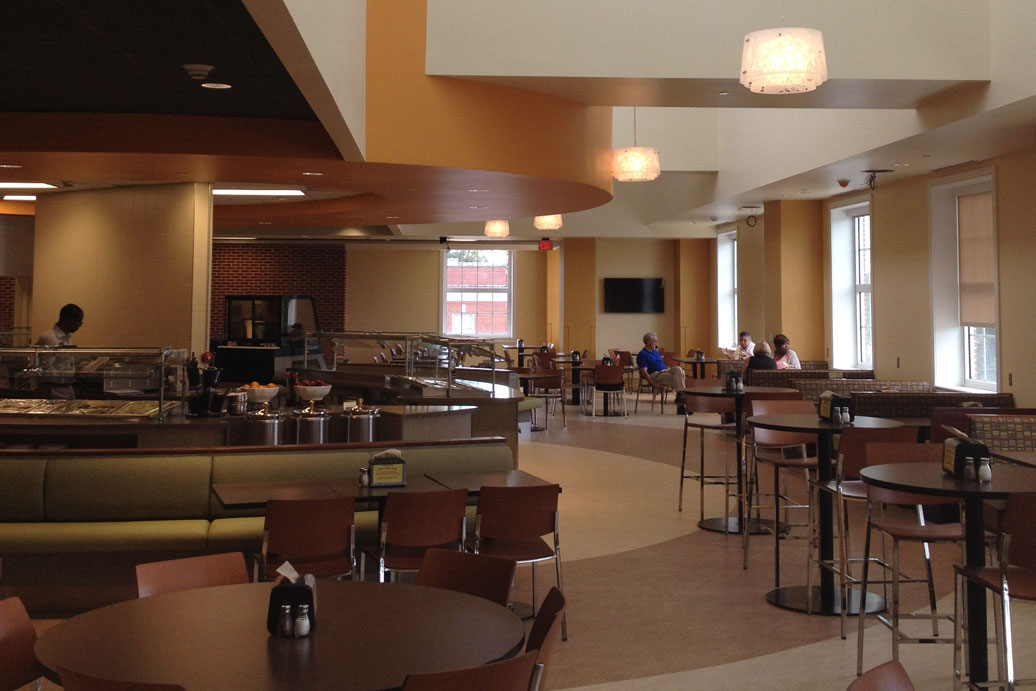What is your protocol for unused and leftover food
When there is leftover food, chefs will determine what can be used again on campus, however food can only be reused or reheated once.
If any food cannot be reused or reheated it is discarded.
In order to decrease the amount of leftover food, food production is done based on the need on campus. This information comes from their post production review.
Cooking in the dining hall is done in a style called batch cooking, this is where meals are cooked to order rather than having mass amounts prepared. This allows for fresher food, higher quality and eliminates over production.
Do you have any partnerships with local homeless shelters?
On campus dining has encountered some snags with homeless shelters in the area because they often times cannot store the quantity of food and it would have to be served immediately.
Dining is hoping to reconnect with them and see what possibilities are for the future.
Most homeless shelters in the area have previously planned meals, and it is difficult for dining to gauge when they will have the level of food availability that the shelters need.
Once a semester, they partner with Micah Ministries. Their team made up of staff and students, will prepare and serve all of the food for that meal.
Typically there are 100 people attending. Dining tries to prepare enough so that people are able to go through the line twice and take leftovers.
These meals typically include baked chicken, roast turkey, pasta salad, and vegetables.
Are there any donation programs that campus dining is involved with?
Dining does a food drive each year, most recently they donated 6,700 pounds of food. This was all donated to the Fredericksburg Regional Food Bank. The food goes directly to the food bank and they have partnerships with homeless shelters in the area.
There is a food recovery network program on campus that is student-led. They come twice a week, Monday and Thursday nights around closing time.
Sous chefs will give the students food, which will be wrapped in disposable food containers, weighed and then taken to the Fredericksburg Baptist Church.
The food at the Baptist church feeds refugee families in the area.
One of the families that regularly attends is a family of 10, the father said that because of this program it allows for them to eat and actually be full.
A direct impact can be seen.
If there was higher involvement from students, they could potentially donate food every night. Dining would just have to work to find a place that is able to receive the food.
Additional Information:
It is difficult for dining to control post consumer waste- waste that takes place after food has been served to students.
Hoping to introduce tasting sizes, that way students can see if they like or don’t like the food rather than getting a full plate and wasting it.
Dining conducts food waste studies every year, last year was the first year that food waste increased after the results from the study had been published.
Food trays were done away with 6-7 years ago, and dining saw a decrease in food waste as a result.
Everything that goes into the dish line is pulped and disposed of in an environmentally friendly way. They are working on trying to get it to a composter.
Believes food waste to be a cultural problem.

